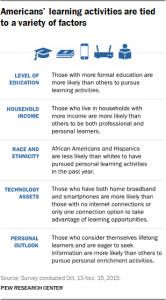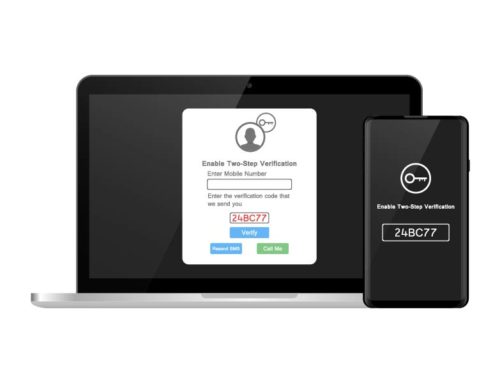A new poll by Pew Research shows that, despite the massive growth of online schools and educational resources, American adults are still unfamiliar with Internet based learning.
Most Americans see themselves as lifelong learners, but most associate learning with schools, clubs, libraries, governmental organizations, and other place or location based learning sites. The poll divides respondents into two groups: personal learners, those that learn for personal growth and pleasure, and professional learners, those that take courses or training to enhance job skills or for career growth. Both groups showed a lack of awareness of digital or Internet based learning options.
According to the study, 61 percent of Americans have little or no awareness of the concept of distance learning, and an even greater percentage have little or no awareness of massive open online courses (MOOCs), digital badges, or large online learning sites like the Khan Academy.

MOOCs, which have exploded in popularity, are websites that offer thousands of courses for free. Many offer some type of certification, including digital badges, for a fee. Many major universities offer online courses on MOOC platforms.
Learning activities are also tied to socioeconomic factors. Respondents with higher levels of education and wealth were far more likely to engage in lifelong learning activities, as were those with a home broadband connection. Race and ethnicity also play an important role in the adoption of digital learning options.
Despite the rapid expansion of online learning resources, place based learning plays an important role in lifelong learning and career training for many Americans, especially those with fewer technology and economic resources.





